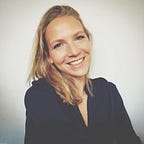To be, or not to be (a woman)
When I was sixteen years old, I decided to not become a woman. I was convinced by the profound loss inherent in that gender. I felt the birth of my end and left the death of my freedom covering my gestures, revealing my spleen. When I ask why to this teenager, she said: you just need to remember what happened.
Eight year old. They call me tomboy because I don’t pretend. Women and men get annoyed to not see me wearing dresses or smiling at the right time. My only game is to run away and climb in the trees, sing with the leaves and never come down.
Ten years old. I witness a young man shaking his girlfriend and pushing her in the stairs. I hide behind the bush, I see my fear shaking the leaves. While walking in the alleys of my hometown in Brussels, the animal screams have brought me here where I thought I could see a fox. But no fox here, no dog here, only the blood scene of our own streets, our humanity, our bestiality. Her frighten face is engraved into my soul and I swear, I swear while I run, chased by the man who saw the leaves moving, I swear no man would ever scare me.
Twelve years old. My female models battle everyday for being happy and perfect, mothers and free. I am their life-long battle, I am their Nature and their prime function. I am their war and their burden.
Later, my curves start to take all the space of my universe. The new eyes bend my shoulders, they explore every bit of my physical naivety and settle on my neck. If I am alone, I can feel their hunger under my skin and their canines in my veins. I am told I have a scoliosis. I only understand later that the real illness is the carnivorous appetite that exhibits itself as a jewel granted by peers, education and tradition.
Sixteen years old. I decide not to become a woman.
My mind and my body disappear. I am anorexic and find walking hard but find freedom better anyway. It tastes nicer than being a woman, than being a body and a victim. I find focusing, sleeping and talking difficult but I found them less important than not growing, than not entering the dangerous world of genders. I pray on my scragginess for not changing anymore, for remaining a shadow. I play with my life for being alive.
I cut my hair short. They think I am a skinny boy who got lost somehow. I wander around and no one notices. I dress and talk like a Gavroche. I am free, I’m hungry and mad but I’m free.
Twenty-one years old. Nature has returned and gave me a body back. I live near North Station in a blue house, we call it the Blue House with a magical note in the voice. I have a new image of myself right in front of me, in that dusty mirror, and I struggle to cope with change. I cannot see it, I hide it. At the same time, in our street, half-naked women wait on display. For days and nights, their only sun is the neon right above their head, their halo.
I walk in front of them in the morning and I see the bystanders shooting insults and gestures at these bodies, I see women spitting on the glass, I see the others being too busy thinking about anything else and I see my reflection in the tired looks of the prostitutes of North Station.
Twenty-two years old. I get fired after turning down the advances of a drunk man. He tells me he has that right; tip wasn’t for the beer. I push him away, I need to leave two hours later. My voice is crushed with the cigarette of my manager, she uses the powerful yet secret Human disease — she ignores.
Twenty-four years old. I cross Asia, Middle-East and Europe on my own. My project, What is a Woman, aims to understand what is our identity outside of our flawed society and how women see themselves. I meet with the Mosuo matriarchs near Tibet; I interview female tech entrepreneurs in Iran; I speak with Karen women at the border between Thailand and Myanmar. I have my camera and my notes, I have my courage in my voice and my miles in the feet. My shoulders bend too, this time because of my backpack full of stories, because it almost has the weight I had when I was sixteen years-old and that I am not scared to walk alone in the streets with it.
I see girls of my age getting kidnapped and beaten in the streets; I see women crying, I see a lot of women crying — not because they tell, but because they are heard. I slowly dive into the abyss of the human soul and what surround it, tradition and fear.
Twenty-five years old. I understand less and less the world around me. I have renounced it. Instead, I stoke without shame my anger and I sharpen it, and I make it a weapon against institutionalised dementia.
I accept to be a woman as long as I am a feminist. I accept to be a woman as long as I can be confident without being arrogant, if I can have a big mouth without being hysterical, if I can act like a man when my body and my spirit are under attack. I accept to be a woman as long as we all get angry at Injustice, as we all, men and women, reject common inequality, of any kind.
